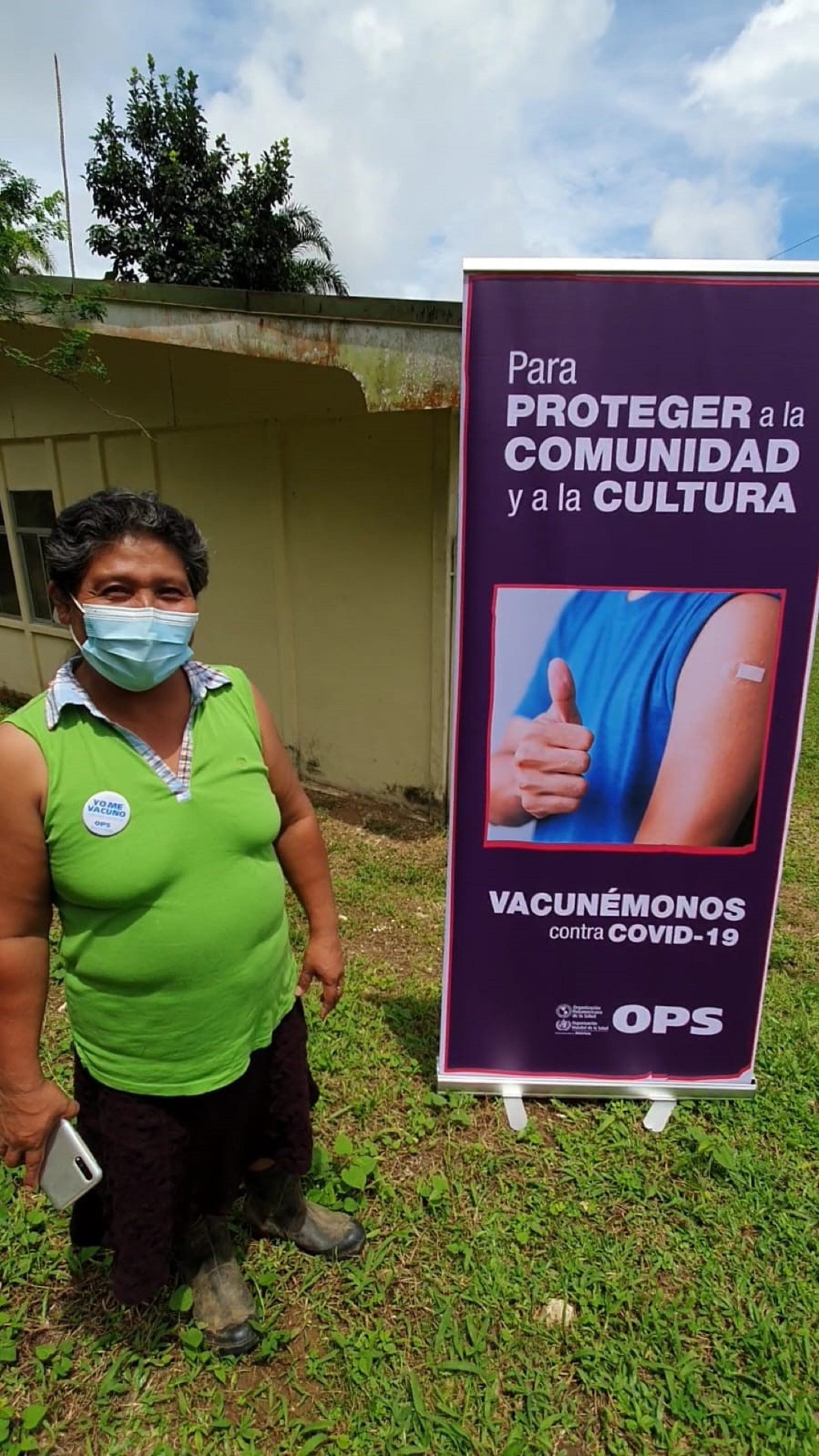Debunking myths about COVID-19 vaccines in Costa Rica
An abundance of information—some accurate, some not—spread alongside the COVID-19 outbreak. The infodemic created a breeding ground for uncertainty and, as Costa Rica began to acquire COVID-19 vaccines through the WHO co-led COVID-19 Vaccine Global Access (COVAX) Facility and bilateral agreements, uncertainty fueled skepticism and distrust causing some people in the country to reject quality, safe, and efficacious COVID-19 vaccines.
To empower people to make evidence-informed choices about COVID-19 vaccination, PAHO launched the Debunking Myths About COVID-19 Vaccines communication initiative in Costa Rica. Its inclusive messaging was transmitted through radio, TV, face-to-face events, and virtual platforms, such as online training courses aimed to leave no one behind.
Verbal and survey feedback indicated that the initiative was well received by community members, and PAHO received a high number of requests from actors at the local, regional, and national levels to replicate the workshops. Vaccine coverage increased, particularly in the segments of the population targeted by the initiative, indicating that the full range of efforts used to improve vaccine uptake in Costa Rica were effective.
How did Costa Rica do it, and how did the WHO Secretariat support Costa Rica?
- Overcoming access barriers for people with disabilities – To address the needs of people with hearing and visual disabilities, the PAHO/WHO Country Office, with inputs from the National Council for People with Disabilities, added a video, Costa Rican Sign Language, and MP3 audio to communication materials. Activities, such as painting images related to the vaccine, were used to transmit the message more effectively in two participatory workshops held with 39 people living with intellectual disabilities and the carers who support them.
“I have learned that COVID vaccines are like a shield; they protect us.”
Course participant with an intellectual disability
- Training health workers – Barriers to accessing COVID-19 vaccination include a lack of adequate knowledge in health workers. Nurses expressed concern about low vaccination rates in pregnant women and needed more information to be able to communicate well with their patients. In response, PAHO developed a version of the workshop focused on pregnancy and lactation and integrated it into an online continuing education course at Hospital México. The course was promoted nationwide through institutional and social networks and 150 obstetric nurses attended.
 Photo Credit: © PAHO Costa Rica
Photo Credit: © PAHO Costa Rica
Photo Caption: Elicia Bejarano, leader of the Abrojo Montezuma indigenous community, where one of the workshops took place.
PAHO’s approach was successful because it recognized that COVID-19 myths and misinformation cut across all segments of the population and a collaborative, participatory approach was taken to address them. PAHO continues to work with national authorities and communities to counter myths and misinformation as they emerge and evolve in Costa Rica. By continually adapting materials to meet diverse needs, PAHO is progressively reaching more people with information that can, for many, be the difference between life and death.
Photo Credit: © PAHO Costa Rica
Photo Caption: A face-to-face version of the workshop was held with Indigenous communities with limited internet access
